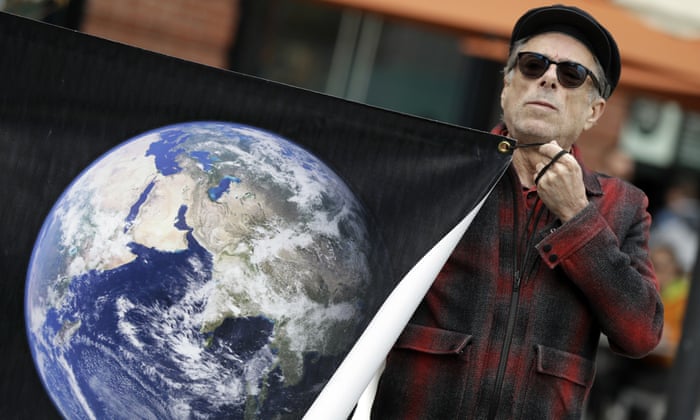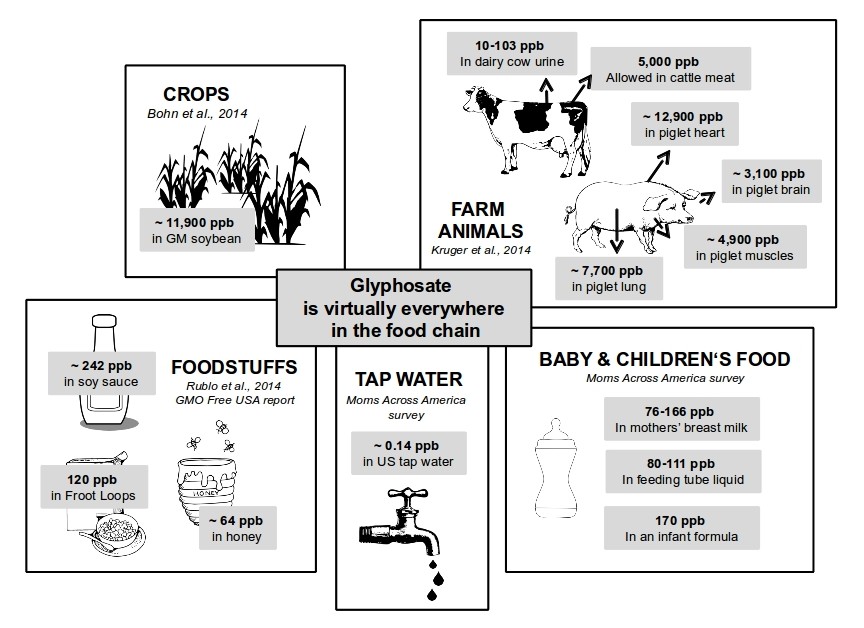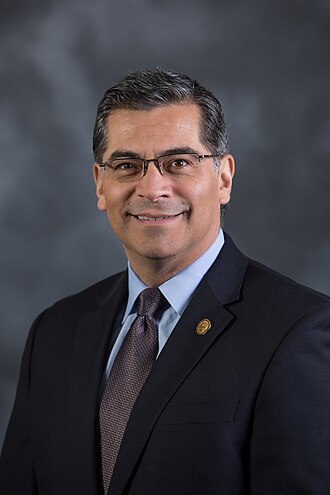April 3, 2018
I. Climate Change
Scott Pruitt / EPA Remain in the News
Story from Huffington Post, Mar. 28, 2018; InsideClimate News, Mar. 15, 2018.

The following are three stories that appeared this month:
(1) The HuffPost was able to obtain an internal email to EPA employees from Scott Pruitt’s office on how to inform states, municipalities and tribes to prepare for natural emergencies without admitting climate change is a human-assisted phenomenon. This memo fits in with the Administration’s general policy of scrubbing climate change from the web site, repealing the Clean Power Plan, and the general defunding of science-oriented programs.
- One of the five talking points admits that “human activity impacts our changing climate in some manner” but leaves the same uncertainty that right-wing misinformation generally uses when addressing this subject.
(2) Earlier this month two environmental groups (Southern Environmental Law Center and Environmental Defense Fund) filed suit against the EPA to disclose correspondence with the conservative, climate change deniers think tank, the Heartland Institute.
- With the help of corporate funding from the likes of Exxon and the Koch Brothers, the Heartland Institute and some other think tanks are responsible for casting doubt on the science, confused public opinion, and forestalled sensible legislation dealing with climate change.
(3) As expected the EPA will announce the rollback of the Obama mileage standards for new cars (55 mpg by 2025).
- Conservative groups would like to target California’s waiver to set its own standards and Attorney General Xavier Becerra is set to fight that situation.
- Auto manufacturers are moving forward with battery-powered vehicles.
Climate Change Science on Trial in San Francisco
Stories from The Mercury News, Mar. 21, 2018; The Guardian, Mar. 21, 2018.

The awaited lawsuit, the people vs major oil companies, filed by plaintiffs (cities and counties in the Bay Area) vs Chevron, Exxon, Shell, BP, and ConocoPhillips began in U.S. District Court in San Francisco on March 21. Federal Court Judge William Alsup started the trial by turning the lawsuit hearing into a classroom about the Science of Climate Change by asking for a “tutorial” so he can “learn some science”. He has formatted the sessions into two parts, first to learn the history of the study of climate science and secondly to allow both parties to present the best available science on global warming and its effects. He asked that eight questions be addressed in the tutorials.
The judge declared this a “tutorial” as opposed to a traditional hearing and had both sides explain historical and technical data on both sides of the issue. SF City Attorney Dennis Herrera noted, “These companies have made enormous profits while putting our cities in harm’s way.”
- The lawsuit was filed by the cities of San Francisco, Oakland, Richmond, Santa Cruz, and also by the counties of Marin, San Mateo, and Santa Cruz.
- At stake are costs of such things as sea walls and other tactics to mitigate damage caused by sea level rise.
- The lawyer for Chevron, speaking for the other oil companies, admitted human activity contributes to global warming.
- The oil companies will need to divulge their part in hiding evidence from the public for many years.
II. Fossil Fuels
BAAQMD Permits ConocoPhillips’s Tar Sands Expansion
Story from Sunflower Alliance website, Mar. 19, 2018.
The Bay Area Air Quality Management District (Air Board) has quietly approved the permit to allow ConocoPhillips to expand their facility to refine more Tar Sands oil, increasing its capacity by 24,000 barrels per day. This follows a wharf expansion project previously explained by the Air Board as NOT part of a refinery expansion. This prompted a demonstration (https://youtu.be/4vL-q3LiYMc) on March 19, spearheaded by Idle No More and 350 Bay Area at the Air District offices on Beale St. in San Francisco.
The Air District is accused of rubber stamping the permit after they stated this would not happen, and then trying to cover it up. Greg Karras of Communities for a Better Environment in Richmond announced that a formal petition to revoke the permit will be filed with the EPA. The petition reveals the lack of transparency with no explanation about permitting the Tar Sands expansion project. Such changes usually require an official public comment period.
Thousands March Against Trans Mountain Pipeline in Canada
Story from Global NEWS, Mar. 10, 2018.

Thousands of people protested the Trans Mountain Pipeline in Vancouver and Burnaby, British Columbia. It took place on Mar. 10, the day after a hearing on the Kinder Morgan lawsuit. The company filed a SLAPP (Strategic Lawsuit Against Public Participation) that brought charges against 15 individuals and named John and Jane Doe(s) in an attempt to stop others from protesting their pipeline.
The number of people (indigenous members and environmentalists) /arc-anglerfish-tgam-prod-tgam.s3.amazonaws.com/public/4DKDGG3XA5CFTLNHPBLQTPW3G4.JPG)
- The judge granted a temporary injunction to Kinder Morgan that would give them the right to call for the arrest of anyone within 50 yards of their property.
An Important Energy Conference Took Place in Houston , Mar. 5 – 9
Story from CERAWeek website; Time, Mar. 6, 2018; aboutenergy.com website.
 The Cambridge Energy Research Associates (CERA) has an annual conference in Houston, TX called CERAWeek. CERA was founded by Daniel Yergin and later taken over by IHS Markit, a London based information company. In the U.S. it focuses on advising governments and private companies on energy markets, geopolitics, industry trends, and strategy.
The Cambridge Energy Research Associates (CERA) has an annual conference in Houston, TX called CERAWeek. CERA was founded by Daniel Yergin and later taken over by IHS Markit, a London based information company. In the U.S. it focuses on advising governments and private companies on energy markets, geopolitics, industry trends, and strategy.
The conference theme was “Tipping Point”, referring to peak oil, and a major issue was “Blockchains”, a new technology that provides visibility and transparency of transactions.
The speakers included domestic and foreign presidents and CEOs of major oil-related corporations including various energy ministers of foreign governments. It also included Secretary of Energy, Rick Perry and Secretary of the Interior, Ryan Zinke; both sounded out of place with their corporate colleagues and, especially with their European counterparts.
- The CEO of Royal Dutch Shell highlighted Climate Change as a major concern and is working toward reducing carbon emissions.
- Other executives advocated for capturing CO2 gas created by burning fossil fuels as the key to dealing with climate change.
- Ryan Zinke spoke negatively about wind energy, claiming the construction of wind turbines contributes to global warming. He gave false totals of the number of birds killed by turbines, and said large solar installations use too much land.
- Rick Perry stated that shifting from fossil fuels to renewables “is immoral” because “it undermines the development of poorer nations.”
III. Water and Food Reports
California Waterfix Proposed Design Refinements
Stories from California Waterfix website, Mar. 2018; Restore the Delta website.
 A new communique from the California Waterfix, the official public information tool for the Dept. of Water Resources, emerged this month outlining the “Design Refinements & Proposed Modifications” for Stage I of the project. It features a neat map revealing the modifications that are part of the forthcoming Supplemental Impact Report due out very soon (Spring, 2018).
A new communique from the California Waterfix, the official public information tool for the Dept. of Water Resources, emerged this month outlining the “Design Refinements & Proposed Modifications” for Stage I of the project. It features a neat map revealing the modifications that are part of the forthcoming Supplemental Impact Report due out very soon (Spring, 2018).
The California Waterfix website also lists a future Stage II as a phased-in possibility, depending on need and environmental review. While Stage II stresses habitat restoration and protection, it would also add the second tunnel.
- The report estimates the Stage I cost to be $10.7 billion, believed to be severely under-estimated, and paid for by the primary users (rate payers) of the Central Valley. The cost is still being negotiated.
- Restore the Delta is a grass roots group of farmers, fishermen, and residents of the Sacramento-San Joaquin Delta area opposing the tunnels and advocating for a less expensive comprehensive plan that would include conservation, infrastructure upgrades, maintaining healthier flows of water in the Delta, and a long-term job plan instead of the temporary jobs that the tunnel construction would provide.
Ubiquitous Glyphosate Showing Up in Beer and Wine
Story from EcoWatch, Mar. 27, 2018; The Detox Project website.
It comes as no surprise that Glyphosate testing has now expanded into alcoholic beverages, and some of our most popular wines and beers are showing contamination. The EPA currently allows a Maximum Contaminant Level (MCL) of 700 ppb (0.7 mg per liter) in American drinking water, and the State of California is set to establish a minimum threshold limit for Glyphosate in drinking water later this year.
The persistence of this herbicide, which does not dry, wash or cook off, and its wide usage ranging from home flower gardens to maintaining manicured agricultural crop rows, is making for a world-wide contamination problem. It is a known neurotoxin, carcinogen, endocrine disruptor and can cause liver disease. The presence of herbicides, if only in minute amounts, is still building up in our foods and water to make for a bigger problem, which is ignored by manufacturers and not properly addressed by our regulators.
- Beers like Budweiser, Busch, Coors, Michelob, Miller Lite, Sam Adams, Samuel Smith, Peak Organic and Sierra Nevada tested over 2 ppb and independent brands tested up to almost 14 ppb.
- Wines like Gallo, Beringer, Mondavi, Barefoot and Sutter Home up to 23 ppb.
- Organic wines and beers also show levels of the herbicide.
- This chart from The Detox Project depicts how pervasive Glyphosate is in our food system:

A Big Problem with Those Little Stickers on Fruits and Vegetables
Story from EcoWatch, Mar. 17, 2018.
 The small stickers on super market produce may be a small matter in our minds but can be a problem for composting facilities. They are known as PLU (product look up) stickers designed to help the cashier determine how much we pay for produce items and are used worldwide.
The small stickers on super market produce may be a small matter in our minds but can be a problem for composting facilities. They are known as PLU (product look up) stickers designed to help the cashier determine how much we pay for produce items and are used worldwide.
While the stickers are a small matter, they’re often made with plastic or vinyl and not biodegradable. They all too often fall through the compost facility’s screening mesh and cause major problems. It is highly recommended to remove them before composting. Thank you!
IV. Miscellaneous Items
San Francisco’s Ban on Fur Sales
Story from Time, Mar. 20, 2018.
 On March 20 the San Francisco Board of Supervisors voted unanimously to ban the sale of fur in San Francisco. It is the third city to do so joining Berkeley and West Hollywood, and is the largest city to do so. The ban is slated to start on Jan. 1, 2019 and will allow dealers to sell current stocks until Jan. 1, 2020. It also won’t apply to second-hand fur items.
On March 20 the San Francisco Board of Supervisors voted unanimously to ban the sale of fur in San Francisco. It is the third city to do so joining Berkeley and West Hollywood, and is the largest city to do so. The ban is slated to start on Jan. 1, 2019 and will allow dealers to sell current stocks until Jan. 1, 2020. It also won’t apply to second-hand fur items.
Xavier Becerra Establishes Bureau of Environmental Justice
Story from Earther, Feb. 23, 2018.
 The California Attorney General’s new bureau will have the mission to protect people in communities that endure a disproportionate share of environmental pollution health hazards. AB 2636 was introduced to create the special bureau within the Environment Section at the California Dept. of Justice.
The California Attorney General’s new bureau will have the mission to protect people in communities that endure a disproportionate share of environmental pollution health hazards. AB 2636 was introduced to create the special bureau within the Environment Section at the California Dept. of Justice.
It will focus on:
- Ensuring compliance with the Calif. Environmental Quality Act (CEQA) and land use planning laws;
- Remediating contaminated drinking water;
- Eliminating or reducing exposure to lead and other toxins in the environment;
- Challenging the federal government’s actions that repeal or reduce public health and environmental protections;
- Penalizing and preventing illegal discharges to air and water from facilities located in communities already disproportionately burdened with pollution.
Germany’s Problems as the Clean Energy Superpower
Story from EcoWatch, Mar. 1, 2018; Climate Home News, Mar. 17, 2018.
 Germany’s “Energiewende” (energy transition) program, moving toward Solar and Wind Power, has resulted in 36% of its electricity in 2017 being clean energy. Their zeal to meet their goals has caused problems on the European grid by producing power surges in other countries, for example Poland. Several other countries are employing different methods and do not synchronize well with the German Energiewende.
Germany’s “Energiewende” (energy transition) program, moving toward Solar and Wind Power, has resulted in 36% of its electricity in 2017 being clean energy. Their zeal to meet their goals has caused problems on the European grid by producing power surges in other countries, for example Poland. Several other countries are employing different methods and do not synchronize well with the German Energiewende.
Germany’s program promises:
- 40% reduction in GHG emissions from 1990 levels by 2020.
- 20% reduction in energy consumption below 2008 levels by 2020 and 50% reduction by 2050.
V. Events
Thursday, Apr 5, 10:00 – 12:00pm, Final Hearing for Oakland Coal Trial
- The lawsuit against the City of Oakland by Phil Tagami
- U.S. Courthouse/Federal Building, 455 Golden Gate Ave, SF.
Saturday & Sunday, Apr 7 & 8, 10:00am – 7:00pm, Sunrise Movement Training
- A movement of young people concerned about climate change.
- Location TBD, see announcement on Facebook.
Monday, Apr 9, 8:30am – 12:30pm, Air District Meeting on Permitting Refinery Expansion for Tar Sands Oil permit
- Stand with First Nations people fighting against a Tar Sands pipeline.
- 375 Beale St., SF
Sunday, Apr 15, 9:30am – 10:45pm, Sunday Forum: California’s Oil Wastewater Practice
- Food & Water Watch organizer, Noemi Tungui speaks on the ‘recycled’ oil wastewater issue in California.
- Unitarian Universalist Church, 1187 Franklin St. SF
Friday, Apr 20, 6:30 – 9:00pm, Sensible Cinema’s film: How to Change the World
- Monthly film series features the film about the founding of Greenpeace.
- Unitarian Universalist Church, 1187 Franklin St., SF
Sunday, Apr 22, 9:30am – 10:45pm, Sunday Forum: Environmental Deregulation in the Trump Era
- Environmental lawyer, Dave Owens, speaks about changes in laws.
- Unitarian Universalist Church, 1187 Franklin St. SF
Saturday, Apr 21, 11:00am – 7:00pm, San Francisco Earth Day Festival and Climate Rally
- Earth Day festival in San Francisco that includes climate speakers.
- SF Civic Center (free)
Saturday, Apr 21, Volunteer in Oakland
Saturday, Apr 21, Other Bay Area Earth Day events
Sunday, Apr 29, 9:30am – 10:45pm, Sunday Forum: Worst Than Poop!
- Vanessa Warheit and Elliot, Mom & son team’s short film that uses a new way to explain climate change. Very special for kids.
- Unitarian Universalist Church, 1187 Franklin St. SF
Other Sources of Events:
350Bay Area – Includes other 350.org branches in the Bay Area.
Planet Drum – San Francisco bioregion awareness center
David Brower Center – The environmental center in Berkeley
Ecology Center – Berkeley sustainability center
Sunflower Alliance – Bay Area umbrella organization for activism
Sierra Club San Francisco – Bay Area Website
The End